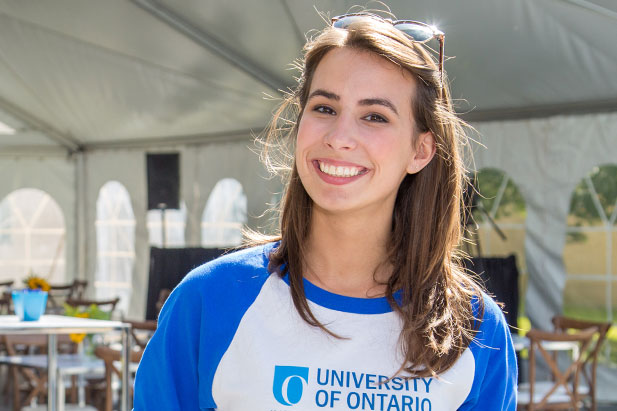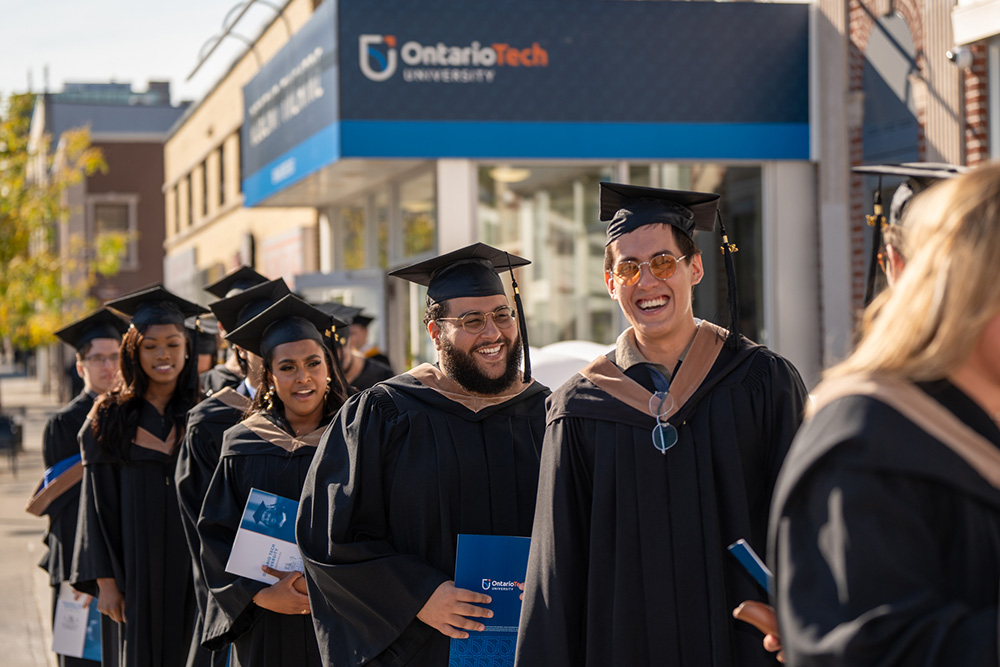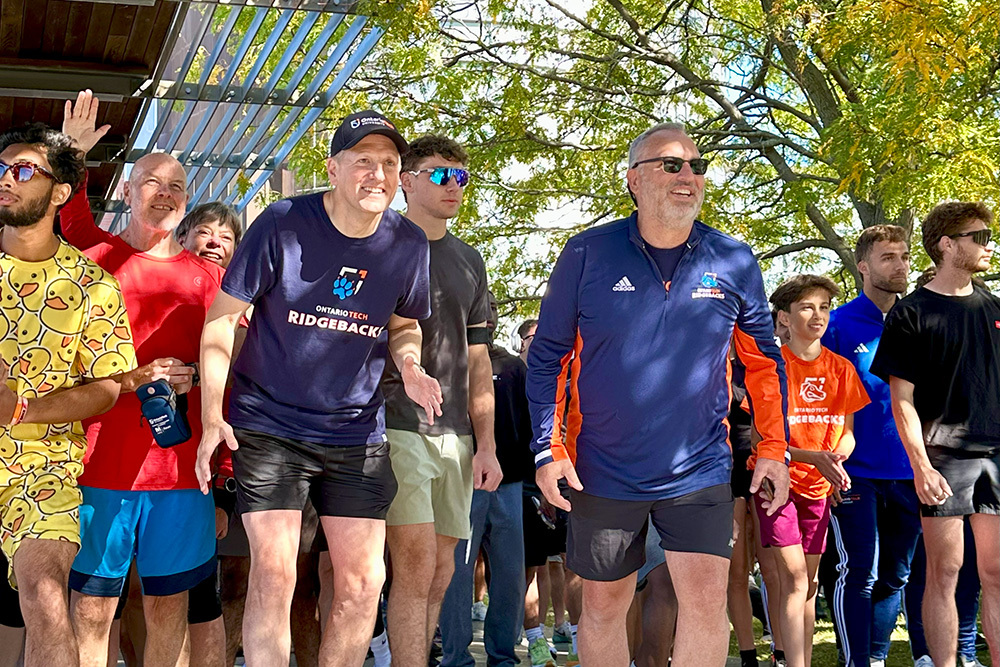Communication and Digital Media Studies program bridges theory to practice
Students research social problems, educate others through digital ‘consciousness raising’ project
May 30, 2017

Universities have traditionally been theory-based institutions, where knowledge and ideas are presented within the framework of a classic style of learning. However, many of today’s scholars believe delivering theory alone doesn’t cut it: students also need hands-on opportunities to apply what they have learned in real-life situations.
The idea of ‘bridging’ theory to practice is an uncommon style of teaching in many university programs. But University of Ontario Institute of Technology (UOIT) Communication and Digital Media Studies (CDMS) researcher Tanner Mirrlees, PhD champions this approach.
“In The Human Condition (1958), American political theorist Hannah Arendt argued scholars too often focus on the contemplative life (the world of ideas) at the expense of the active life (the world of working to make real social change),” says Dr. Mirrlees, Assistant Professor, Faculty of Social Science and Humanities (FSSH). “The University of Ontario Institute of Technology’s founding motto is ‘By thinking and doing, we shall lead.’ For me, this motto expresses the ‘philosophy of praxis,’ or, the notion that in addition to trying to understand the world, scholars should try to change it for the better. Communication and Digital Media Studies scholars bridge the gap between theory and practice.”
Dr. Mirrlees encourages students to supplement their final research essay with a social media campaign in his Digital Media, Politics and Democracy course.
“The final assignment for the course enables students to do research on a social problem and to develop a social media campaign that engages, informs and educates people about the social problem,” says Dr. Mirrlees.
For her assignment, Emily Rowsell (Political Science major and CDMS minor, class of 2018) chose to investigate sexism in the modern workplace. Rowsell’s project connected deeply with her views and personal experiences. As a feminist who has dealt with sexism first-hand in the workforce, she set out to illustrate how women have been treated in their place of work and the empowerment women have when they challenge their challengers.
“I’ve always had this idea from a young age, and from things that I’ve experienced, that as a woman I’m going to have to work 10 times as hard to prove my worth,” says Rowsell. “It’s not just enough to step into the workplace.”
First, she reached out to her Facebook friends asking them to share stories about their experiences with sexual harassment and barriers to success. “Within one hour I already had close to 15 comments and an additional five messages inquiring about the project,” Rowsell says. She set up The Working Woman (a subsite on her personal blog, Creative & Chaos), that features 10 of the testimonials she received. She then used those responses to gauge the direction of her final paper.
Rowsell’s blog attracted considerable attention; it was reblogged, shared extensively on social media by friends and colleagues, and promoted through the CDMS Twitter account. She continues to receive responses.
“Emily Rowsell’s website is an important example of digital ‘consciousness raising’ in a time when the political situation, especially in (U.S. President Donald) Trump’s America, emboldens sexism,” says Dr. Mirrlees. “The website offers a safe space for women to anonymously express their experiences. Emily’s research and digital creation showcases how theory and practice can come together.”
Rowsell believes the opportunity to put her skills to work is a powerful part of her university experience.
“Classes with a creative component allow you to expand your knowledge base and hone certain skills,” she says. “The University of Ontario Institute of Technology is diverse in its programming, which is the essence of 21st-century learning. The university is based on innovation and creativity, and that is what these courses allow us to do.”



